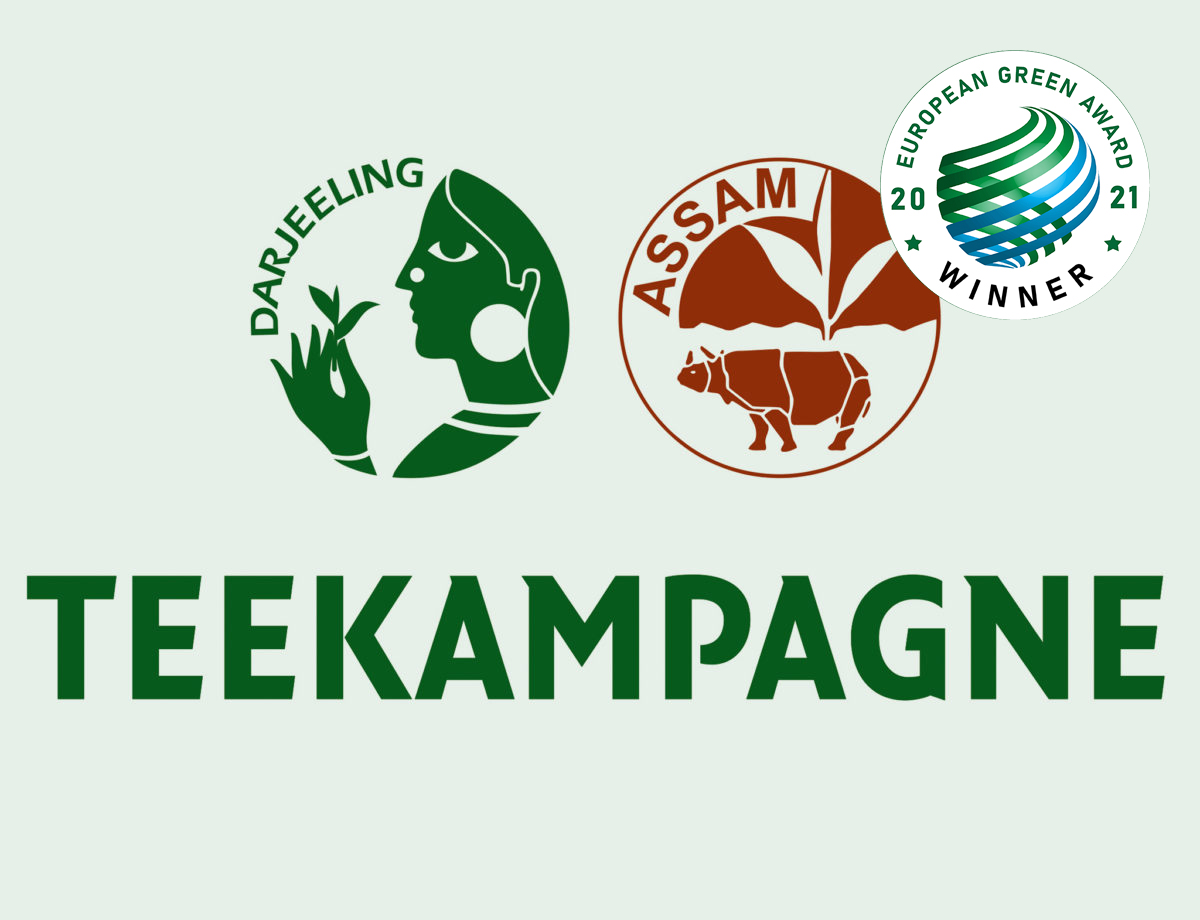Teekampagne
Intelligent economy
TEEKAMPAGNE has proved that there is no need for notoriously marketing sustainable products at higher prices than conventional ones – and thereby paved the way for successfully establishing sustainable economies.
Gallery
General Description
Every year, the TEEKAMPAGNE invites people all over Europe to buy their annual supply of freshly harvested organic teas from Darjeeling and Assam. Over 200,000 tea fans now follow the campaign call – and the number is growing every year! The teas are traded fairly and very transparently according to a concept that leaves out everything superfluous: The intermediate trade, unecological small packaging, unnecessary transport routes, long storage times. Instead of advertising, there are sustainability projects in India and strict laboratory controls. Both producers and consumers benefit from the proof of origin and the traceability of all teas – there is no losing side.
With the founding of the TEEKAMPAGNE (1985), Prof. Faltin proved that sustainable products of the highest quality do not have to be more expensive than conventional goods. Thus, they are not only reserved for the better-off – an absolute prerequisite for the global and lasting success of sustainable business!
Sustainability Impact
ECOLOGY – Minimization of environmental impact by avoiding unnecessary transport; reduction of packaging (achieved through large containers up to 1000g); products from controlled organic cultivation; financing of a large reforestation project in Darjeeling.
SOCIAL SUSTAINABILITY – Fair trade (a good 50% of the sales prices remain with the producers); financing of infrastructure measures in the growing regions.
TRANSPARENCY – disclosure of price calculations; publication of all analysis results (by independent laboratories) as well as all product characteristics (exact origin, harvest period, etc.); traceability.
INNOVATION through forward-looking pricing – Despite the highest quality, organic teas do not cost more than conventional goods. Making sustainable products affordable not only for the wealthy is an important condition for the implementation of sustainable economics. The price additionally leads to private purchase recommendations, so that classical marketing becomes almost superfluous.
Head of Project
Thomas Räuchle-Gehrig (CEO)



